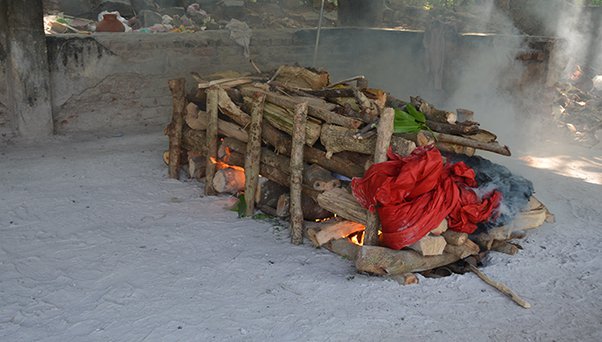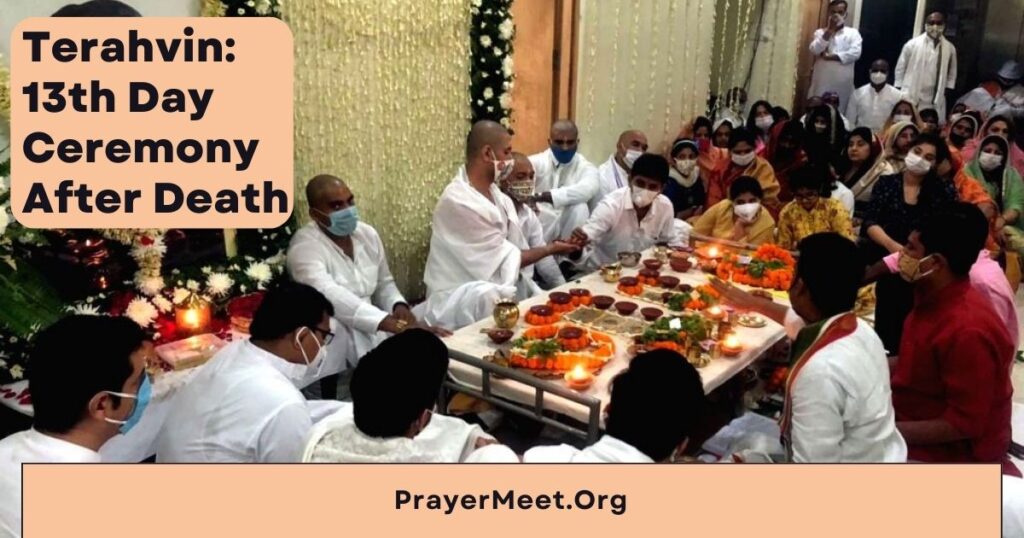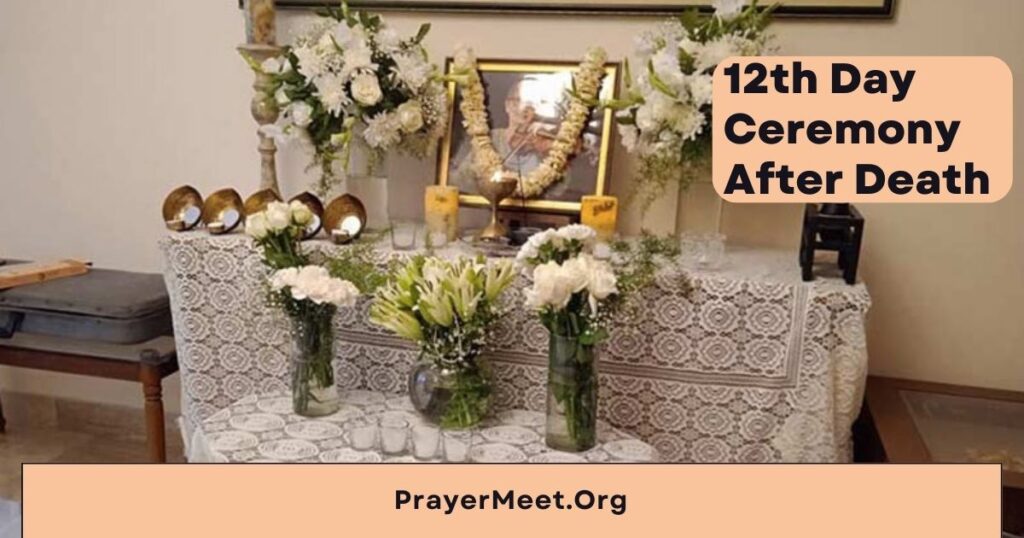Losing a loved one is an emotionally challenging experience, and the rituals that follow their passing hold immense significance in the Hindu culture. One such ritual is the 3rd day death ceremony, which involves the important customs of Asthi Visarjan and Karta.
As a shradhanjali singer, my journey has taken me to countless prayer meets where I have witnessed the power of music and spirituality. Drawing upon my knowledge and experience, I am now dedicated to creating these blogs as a means to extend my assistance to those in need.
So, let us delve into the meaning and essence of this sacred ceremony of the 3rd day death ceremony.
3rd Day Death Ceremony Meaning
The 3rd day death ceremony in Hindu funeral rituals holds profound meaning. It includes Asthi Visarjan and the role of the Karta. Asthi Visarjan symbolizes the soul’s transition from the earthly realm to the spiritual realm. The Karta, typically the eldest son or a close family member of the departed, takes on the responsibility of overseeing the rituals. This ceremony allows the family to honor the departed soul, find solace, and achieve closure. It signifies the spiritual passage, acceptance of impermanence, and importance of remembrance.
3rd Day Death Ceremony Significance And Purpose

The 3rd day death ceremony is a crucial part of Hindu funeral rituals and has immense significance. It serves to honor the departed soul and provide solace and closure to the grieving family. This ceremony signifies the journey of the soul, allowing the family to grieve and make necessary arrangements. Through prayers and rituals, the ceremony acts as a transition for both the departed soul and the family, offering support and comfort. It also reminds them of the impermanence of life and the eternal nature of the soul.
Why Are Funerals 3 Days After Death?

The timing of the funeral ceremony, specifically three days after death, has a spiritual and practical rationale behind it. According to Hindu belief, it is believed that the soul hovers around the earthly realm for three days before departing for its onward journey. This waiting period allows the family to grieve and make the necessary preparations for the funeral rites.
The Antim Sanskar ceremony, performed on the third day after cremation, is a very important part of the cremation in Hindu culture. It is during this ceremony that the mortal remains, referred to as “asthi“, are collected. The family members and close relatives gather to pay their final respects and perform the ritualistic prayers, seeking peace and salvation for the departed soul.
3rd Day Post Death Procedure
The 3rd day post-death procedure in Hindu funeral customs involves rituals and ceremonies to honor the departed soul and facilitate their spiritual journey.
- Asthi (ashes) are collected and placed in a sacred vessel, symbolizing the soul’s transition to the spiritual realm.
- Ritualistic prayers, hymns, and offerings are performed to honor the departed soul.
- Family members offer prayers, flowers, incense, and symbolic items to assist the soul’s spiritual journey and bring peace to the family.
- Reflections on the life of the departed loved one are shared, celebrating their impact and preserving their memory.
- The family seeks blessings and spiritual guidance for the departed soul, praying for liberation and peace.
The 3rd day post-death procedure provides a time for the family to come together, support each other, and find solace in collective mourning and remembrance.
Why Is Asthi Collected On The 3rd Day After Death ?
The practice of collecting the asthi (ashes) on the third day after death holds religious and spiritual significance. It is believed that during the initial days after cremation, the soul remains connected to the earthly realm. By collecting the asthi on the third day, the family acknowledges the transition of the soul and performs the final rites to facilitate its liberation and spiritual journey. These rituals offer a way for the grieving family to pay their final respects and seek peace for the departed soul as it embarks on its eternal journey.


